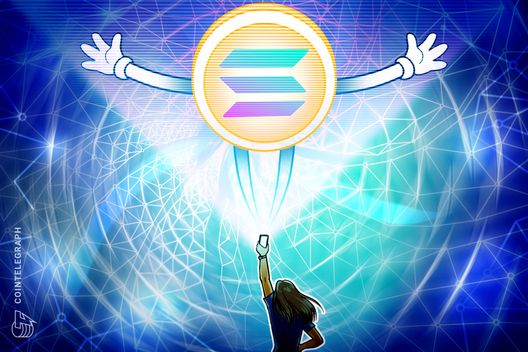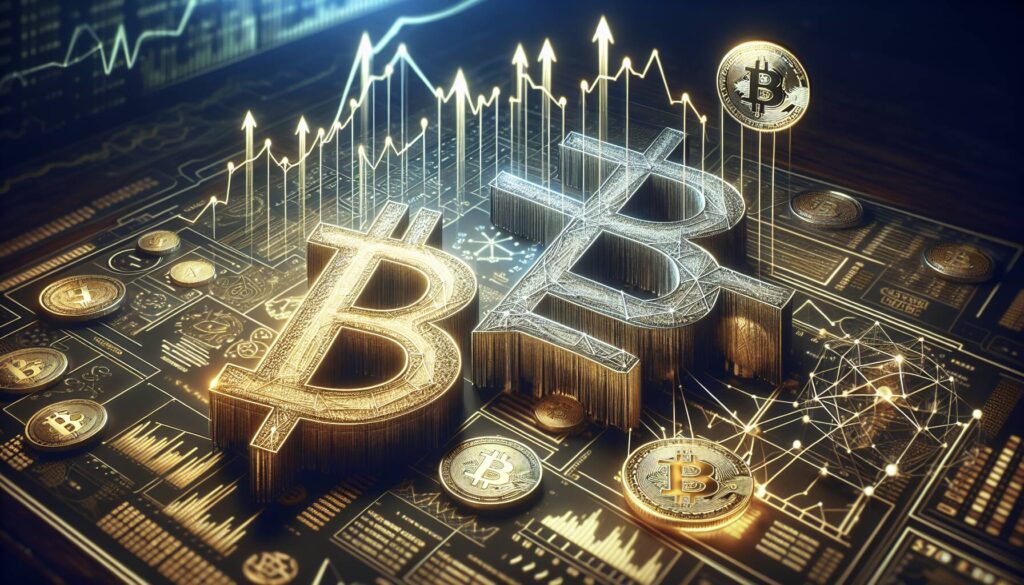A new era in blockchain communication has arrived as the DoubleZero Foundation officially launched its mainnet-beta, aiming to revolutionize how blockchain validators connect and operate online. Announced on Thursday, this innovative network is designed to create what can be likened to a “fast lane” for blockchains, enhancing the speed and efficiency of transaction processing.
Traditional internet connections can be slow and unreliable, which poses challenges for blockchain operations that depend on swift and precise coordination among thousands of nodes. DoubleZero addresses this issue by offering dedicated fiber routes for Solana validators, enabling them to communicate more effectively and reduce lag. In essence, this private highway system promises to elevate the overall performance and reliability of blockchain transactions, benefiting both validators and end users.
“Blockchains and other globally distributed systems rely on thousands of nodes coordinating in real time. The efficiency of their communication layer directly impacts security, validator profitability and the end-user experience,” explained Austin Federa, co-founder of DoubleZero.
Early adoption is already evident, with 22% of staked SOL now utilizing the DoubleZero network, bolstered by contributions from major industry players such as Jump Crypto, Galaxy, RockawayX, and Jito. These firms are investing in fiber links and engineering resources, banking on the notion that improved internet infrastructure will support the scaling of blockchain applications. Following a successful funding round in March that raised $28 million and achieved a $400 million valuation, DoubleZero is set to make significant strides in the cryptocurrency space.
The backbone of DoubleZero’s system is its native token, 2Z, which allows validators and stakers access to high-speed routes and incentivizes their participation based on the utility they provide. Noteworthy is the recent no-action letter from the U.S. Securities and Exchange Commission, which allows DoubleZero to proceed with its token launch.
While the current focus on Solana is pressing, the roadmap for DoubleZero is expansive, with aspirations to evolve into a chain-agnostic network capable of supporting a variety of blockchains and high-performance distributed systems moving forward.

DoubleZero Foundation: Revolutionizing Blockchain Communication
Key points regarding the impact of the DoubleZero project on blockchain technology:
- Mainnet-Beta Launch: The DoubleZero Foundation has successfully launched its mainnet-beta, providing a new communication network for blockchain validators.
- Fast Lane for Blockchains: DoubleZero offers a faster alternative to the public internet, enabling quicker communication between Solana validators.
- Reducing Lag: By utilizing private fiber routes, DoubleZero minimizes transaction processing delays, enhancing performance and reliability.
- Impact on Security and Profitability: Efficient communication among nodes strengthens security and potentially increases validator profitability.
- Industry Adoption: 22% of staked SOL currently operates on the DoubleZero network, showcasing significant early adoption among major crypto firms.
- Funding and Valuation: The project raised $28 million, achieving a $400 million valuation led by Dragonfly and Multicoin Capital.
- 2Z Token Utilization: DoubleZero’s native token, 2Z, is essential for validators to access high-speed routes and earn rewards based on their contributions.
- Regulatory Progress: The U.S. SEC issued a no-action letter, allowing DoubleZero to proceed with the launch of its native tokens.
- Future Expansion Plans: Beyond Solana, DoubleZero aims to further develop a chain-agnostic network that supports multiple blockchains.
“The efficiency of their communication layer directly impacts security, validator profitability and the end-user experience,” – Austin Federa, Co-founder of DoubleZero.
DoubleZero Foundation Launches High-Speed Blockchain Network
The DoubleZero Foundation has recently launched a groundbreaking initiative aimed at enhancing the communication speed between blockchain validators, specifically targeting Solana’s network. This project introduces a unique, high-speed infrastructure that channels blockchain traffic through specialized fiber routes, enabling quicker and more reliable transactions compared to conventional internet options. While the concept of improving blockchain efficiency is not new, DoubleZero’s approach of creating a dedicated “fast lane” is a significant competitive advantage that sets it apart from other solutions currently available in the market.
One notable advantage of the DoubleZero network is its ability to reduce latency significantly, which can be crucial for applications requiring real-time data exchange. As blockchain technology becomes increasingly integral to various industries, this lack of lag becomes paramount. Compared to older variants of blockchain infrastructure that rely on more generalized internet pathways, DoubleZero provides a fine-tuned alternative specifically tailored for high-speed interactions.
On the downside, the project’s success hinges upon widespread adoption among validators and consumers alike. The reliance on a singular point of infrastructure raises concerns regarding decentralization—an essential tenet of blockchain technology. Should DoubleZero’s network dominate, it may threaten the democratic nature of validator engagement, leading to a landscape where only certain players can benefit from speedier connections. Moreover, if the network fails to deliver on its speed claims, trust in the underlying system could wane, jeopardizing not only user adoption but potential regulatory scrutiny as well.
This development could significantly benefit validators and stakers within the Solana ecosystem, especially those who prioritize performance and reliability in their transactions. Early adopters of the network stand to gain an edge, as improved processing times may translate into higher profitability and better overall user experiences. However, competitors in the blockchain domain may find it challenging to keep pace, potentially leading to a situation where they must adapt quickly or risk obsolescence.
As DoubleZero continues to expand its vision by potentially including other blockchain platforms down the road, the implications of its service could ripple across the entire industry. With substantial financial backing and early positive traction, it may very well reshape the standard for transaction speeds in landmark ways, but it will need to navigate the complexities of industry dynamics to maintain its upward trajectory.

















